Rob Bignell's Blog, page 374
April 25, 2013
Your acknowledgements and dedication pages
Many 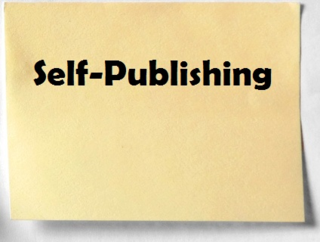 authors like to take a bow (or curtsey) to those who helped their book become reality. Many also like to honor someone special in their lives by dedicating the book to them. These names respectively appear in the acknowledgements and dedication.
authors like to take a bow (or curtsey) to those who helped their book become reality. Many also like to honor someone special in their lives by dedicating the book to them. These names respectively appear in the acknowledgements and dedication.
Though the lists may be short, they can appear on separate pages or the same one – it’s entirely up to you. Either way, the acknowledgements and dedication follow the table of contents. Typically they appear in the same typeface and point size as the book’s text. The header “Acknowledgements” and “Dedication” typically is used.
Sometimes the number of people an author wishes to list in the acknowledgements is so long that the names simply are placed at the end of the introduction (more on that section later!). This also allows the author to add a special note to many of these he acknowledges.
Who should appear in the acknowledgements? Anyone the author likes. Still, traditionally if a person created material that appears within the book – say photographs, tables/charts, illustrations, cover design – their names should appear on the title page as well. Others that you wouldn’t list on the title page but that could be placed in the acknowledgements include:
g Supportive family members (spouse, children)
g Editor and proofreaders
g Agent/manager
g Contributors/advisers
g Research assistants
g Former teachers
g Inspirations
g Office staff (attorney, accountants, executive assistants)
g Paginators (those who formatted your book)
Limiting the dedication to just a couple of names at most is traditional. After all, the dedication is a high honor; dedicating a book to a lot of people tends to diminish its specialness.
Finally, always make sure you have the names spelled right and the correct titles given. There’s perhaps no greater way to insult someone than to get their name wrong in a book’s acknowledgements and dedication!
Need an editor? Having your book, business document or academic paper proofread or edited before submitting it can prove invaluable. In an economic climate where you face heavy competition, your writing needs a second eye to give you the edge. I can provide that second eye.
Related articles
 Self-publishing book receives good reviews
Self-publishing book receives good reviews Basic guidelines for self-publishing ebooks
Basic guidelines for self-publishing ebooks Guidelines for designing your book cover's spine
Guidelines for designing your book cover's spine Always review proof your book before okaying it
Always review proof your book before okaying it
April 24, 2013
Some good counsel: Advisor vs. Adviser
Frequently my writing clients ask me which form of these words is correct. The good news is they may use either “advisor” or “adviser”…they’re synonyms that both mean “to counsel.” I must admit, though, that I was taught to use “adviser” by both my high school English teachers and my college journalism instructor, but apparently none of them ever attended Purdue University (or a handful of other institutions of higher learning) where “advisor” is the official spelling in job titles and “advisor” appears as the official spelling in their guidebooks. Regardless of which version you use, the best advice is to be consistent and stick to only one spelling throughout your piece.
my writing clients ask me which form of these words is correct. The good news is they may use either “advisor” or “adviser”…they’re synonyms that both mean “to counsel.” I must admit, though, that I was taught to use “adviser” by both my high school English teachers and my college journalism instructor, but apparently none of them ever attended Purdue University (or a handful of other institutions of higher learning) where “advisor” is the official spelling in job titles and “advisor” appears as the official spelling in their guidebooks. Regardless of which version you use, the best advice is to be consistent and stick to only one spelling throughout your piece.
Need an editor? Having your book, business document or academic paper proofread or edited before submitting it can prove invaluable. In an economic climate where you face heavy competition, your writing needs a second eye to give you the edge. I can provide that second eye.
Related articles
 Seduced by wrong word? Sensuous vs. sensual
Seduced by wrong word? Sensuous vs. sensual Nothing to joke about: Blonde vs. blond
Nothing to joke about: Blonde vs. blond When to use affect vs. effect
When to use affect vs. effect '7 Minutes a Day' now available in paperback!
'7 Minutes a Day' now available in paperback!
April 23, 2013
Editing client releases first children’s book
An editing client 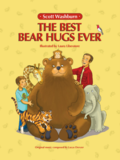 of mine from last summer, Scott Washburn, has released his first children’s book, “The Best Bear Hugs Ever.” Written for preschoolers through early elementary kids, the book tells the tale of a father and son who go to the zoo, trying to determine which animal gives the best hugs. The conclusion? Once home, they decide that their own family gives each other the best bear hugs ever. The book is beautifully illustrated by Laura Liberatore and comes with score written by Lucas Denzer. It is available for purchase online.
of mine from last summer, Scott Washburn, has released his first children’s book, “The Best Bear Hugs Ever.” Written for preschoolers through early elementary kids, the book tells the tale of a father and son who go to the zoo, trying to determine which animal gives the best hugs. The conclusion? Once home, they decide that their own family gives each other the best bear hugs ever. The book is beautifully illustrated by Laura Liberatore and comes with score written by Lucas Denzer. It is available for purchase online.
Need an editor? Having your book, business document or academic paper proofread or edited before submitting it can prove invaluable. In an economic climate where you face heavy competition, your writing needs a second eye to give you the edge. I can provide that second eye.
Related articles
 Hawaiian editing clients release first book
Hawaiian editing clients release first book Five quotations about the business of writing
Five quotations about the business of writing Devise plan to market your self-published book
Devise plan to market your self-published book Discuss your book's topic online
Discuss your book's topic online
April 22, 2013
Add 'big scenes' to give story some oomph
Does your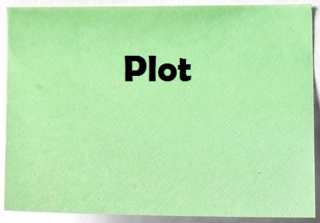 story’s plot feel flat, as if there’s not enough build-up to the final, fateful act? The story probably lacks big scenes.
story’s plot feel flat, as if there’s not enough build-up to the final, fateful act? The story probably lacks big scenes.
A big scene occurs when the story’s drama – which occurs because it is central to the theme – is powerful. Because of this, a big scene is more than just flash and bang.
Think of one of the great big scenes of all time: the final battle between Luke Skywalker and Darth Vader in “Return of the Jedi”. It’s larger than any scene that has occurred before in the movie (perhaps larger than any scene in any of the six “Star Wars” movies, which is prefect as this is the last episode in the series). There’s more at stake than ever: Luke’s life, the lives of his friends such as Princess Leia and Han Solo, the fate of the rebels against the evil Empire. This scene, however, also is thick with thematic elements: son vs. father, the value of self-control vs. rampant emotions, and good vs. evil.
A big scene is more than just the story’s climax, however. Indeed, a big scene should come at regular intervals. Think of the rising action portion of a story’s plot. It’s not a steady, even climb up to the climax but a series of bumps, with a dramatic action that ascends and then falls only to build again. Each bump represents a big scene.
Usually each big scene is bigger than the last. That’s because as nearing the story’s climax, the main character must be increasingly pushed to make a final, do-or-die-like decision. Each of the story’s thematic points are increasingly explored and questioned.
Re-examine your own stories to see if there are big scenes in them. If not, reconsider how you’ve plotted the tales. Is there a more exciting way to tell the story by testing a thematic issue through suspenseful action in increasingly more dramatic ways?
Need an editor? Having your book, business document or academic paper proofread or edited before submitting it can prove invaluable. In an economic climate where you face heavy competition, your writing needs a second eye to give you the edge. I can provide that second eye.
Related articles
 Conflict: The heart of every story
Conflict: The heart of every story Consider using man vs. nature conflict in your story
Consider using man vs. nature conflict in your story How to form your story's basic structure
How to form your story's basic structure Select a viewpoint that gives you flexibility
Select a viewpoint that gives you flexibility Use bait-and-switch device carefully in stories
Use bait-and-switch device carefully in stories
April 21, 2013
Story more profound with man vs. himself conflict
Perhaps 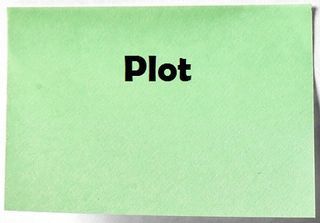 the most profound conflict a character can face is when he is at odds with himself. Conflicts in which the protagonist faces off against other individuals or society often result in characters that represent ideals and concepts. But the character that first must deal with his own foibles in order to overcome a villain or oppressive values has learned something. He has grown as a character and become a better human being. Ideally, your readers will grow with this character, making his triumph over others more lasting in the readers’ minds.
the most profound conflict a character can face is when he is at odds with himself. Conflicts in which the protagonist faces off against other individuals or society often result in characters that represent ideals and concepts. But the character that first must deal with his own foibles in order to overcome a villain or oppressive values has learned something. He has grown as a character and become a better human being. Ideally, your readers will grow with this character, making his triumph over others more lasting in the readers’ minds.
An example of man vs. himself conflict is Anakin Skywalker’s internal struggle in “Star Wars III: Revenge of the Sith” in which the young jedi must decide if he will serve the powers of good or turn to the Dark Side. In this case, Skywalker makes the wrong choices and becomes the villain Darth Vader.
If handled correctly, a man vs. himself conflict can raise a story to high art. The “Star Trek: The Original Series” episode “The City on the Edge of Forever” in which Captain Kirk must decide between his love for a woman and his responsibility to the future of humanity is modern tragedy. In Stanslaw Lem’s “Solaris”, a psychologist is reunited with what appears to be his wife but in reality is an amalgam of his memories of her. The result is an intense psychological struggle worthy of the best contemporary literature.
Arguably, your story gains sophistication when your main character must do overcome a challenge other than defeating the forces of nature or a straight villain. To survive being marooned on a desert world or succeed in taking down an alien menace, your main character ought to first have to overcome some internal conflict that in turn allows him to be victorious over nature or invader. For example, in Anne McCaffrey’s short story “The Smallest Dragonboy,” the main character Keevan must learn self-discipline and gain self-confidence to achieve his goal of becoming a dragonrider. In doing so, he overcomes the story’s wider challenge of being ridiculed by the other older and stronger boys.
Your story almost always is better when a man vs. himself conflict rests at its core.
Need an editor? Having your book, business document or academic paper proofread or edited before submitting it can prove invaluable. In an economic climate where you face heavy competition, your writing needs a second eye to give you the edge. I can provide that second eye.
Related articles
 Conflict: The heart of every story
Conflict: The heart of every story How to form your story's basic structure
How to form your story's basic structure Consider using man vs. nature conflict in your story
Consider using man vs. nature conflict in your story Story more profound with man vs. himself conflict
Story more profound with man vs. himself conflict Incorporate man vs. man conflict into your story
Incorporate man vs. man conflict into your story
April 20, 2013
Should you ever co-write your book?
Sometimes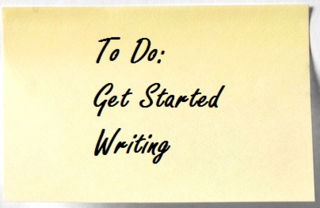 you come up with a great story idea with another person. Or your discussions and critiques of one another’s works are inspiring. So you decide to co-write a book.
you come up with a great story idea with another person. Or your discussions and critiques of one another’s works are inspiring. So you decide to co-write a book.
Is it a good idea?
There are, of course, a number of great books written by a pair of authors. On the other hand, most books boast a single author, and when asked who are our favorite authors, we rarely gave the name of a duo.
There are a number of pros to co-authoring a book:
g Create synergy – You can avoid writer’s block by feeding off of one another ; when uncertain where to take the novel, for example, a co-author often can provide ideas that inspire. Think Lennon and McCartney when songwriting, with one filling in the other’s gaps.
g Complement one other’s talents – If you lack the expertise, a partner may be the way to go. For example, a tech savvy person can really benefit from a person who has a way with words (and vice-versa).
g Division of labor – Writing a novel takes a long time; even those who do it full time may spend up to a year penning their tale. Two writers theoretically means half of the work, right? It’s rarely that simple, but certainly in most cases authors don’t have to generate as much of a story’s details when sharing the workload.
There are downsides, unfortunately:
g Difference of opinions – Sometimes disputes over what the book is about and how to execute ideas can stall the writing. The co-authors should have a clear idea of where the book’s purpose before they begin writing.
g Developing a single voice – Writers can have very distinct styles. If the book writing is divided so one author pens Chapter 1 and the other author knocks out Chapter 2, the two chapters may sound like they’re from entirely different books.
g Establishing a contract that is acceptable to both of you – How will the profits be split? How will the work load be divided? What is the marketing strategy and who will implement it? Who will be your agent? These questions can split even the greatest writing partnerships – consider Lennon and McCartney.
Need an editor? Having your book, business document or academic paper proofread or edited before submitting it can prove invaluable. In an economic climate where you face heavy competition, your writing needs a second eye to give you the edge. I can provide that second eye.
Related articles
 Five great quotations for aspiring writers
Five great quotations for aspiring writers
April 19, 2013
Discuss your book’s topic online
When p romoting your book, you always should have a website, send out press releases to bloggers and mainstream media, and arrange book readings/signings to ensure the title is properly promoted. But those aren’t the only things you can do. In fact, they may not be enough. One marketing effort you might want to consider is discussing your book’s topic online.
romoting your book, you always should have a website, send out press releases to bloggers and mainstream media, and arrange book readings/signings to ensure the title is properly promoted. But those aren’t the only things you can do. In fact, they may not be enough. One marketing effort you might want to consider is discussing your book’s topic online.
Quite a number of online forums related to the topic of your book almost certainly exist. You ought to participate in such forums, subtly including a link to your book or website in your signature block. While you don’t want to directly promote your book by talking about it in a shameless plug, you do want to establish yourself as an expert on its subject. As people are impressed by your answers, they’ll naturally look you up just to see how come you know so much. Participation in online forums also is a good way to get a sense of what readers are interested in…which could be fodder for your next book!
Need an editor? Having your book, business document or academic paper proofread or edited before submitting it can prove invaluable. In an economic climate where you face heavy competition, your writing needs a second eye to give you the edge. I can provide that second eye.
Related articles
 Why you want reviews written about your book
Why you want reviews written about your book Market your book with endorsements
Market your book with endorsements Market your book with a free unpublished story
Market your book with a free unpublished story Self-publishing book receives good reviews
Self-publishing book receives good reviews
April 18, 2013
Devise plan to market your self-published book
It’s the 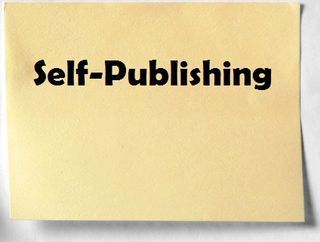 rare book that somehow goes virulent and captures the public’s attention and admiration all on its own. Indeed, around 800 books are published daily in just the United States alone, so no matter how good your book is, the odds of it even being noticed are nil at best.
rare book that somehow goes virulent and captures the public’s attention and admiration all on its own. Indeed, around 800 books are published daily in just the United States alone, so no matter how good your book is, the odds of it even being noticed are nil at best.
The reality is that indie authors and those who self-publish need to market their own books.
For most authors, the idea of marketing their book is anathema. Marketing for many literary writers means using guilt and fear to convince people to buy a product. Even for those authors who don’t hold such a view, they probably never studied marketing and have no idea of how to begin such an effort.
But the reality is that unless you’re satisfied with your book languishing in anonymity, you need a marketing plan to promote your book. As a minimum, you’ll need to do the following:
n Website – An online presence that at the least tells about your book and you the author as well as providing a sample chapter is necessary for almost any book. A website offers the media and fans who want to know more about the book and the author a place to obtain that information.
n Press releases – Once your book is available for sale, you’ll need to send press releases to media outlets in your hometown as well as to bloggers and periodicals that cover your title’s subject.
n Public appearances – If you’re a novelist, a book reading is a great way to connect with fans. If you wrote a nonfiction book, speak at conferences related to its subject. Radio interviews are another good way to get out the word about your book.
There’s a lot more you can do, from making business cards to even advertising. It’s a broad topic – broad enough that I’ve dedicated another book in my 7 Minutes a Day… series to it: 7 Minutes a Day to Promoting Your Book.
Need an editor? Having your book, business document or academic paper proofread or edited before submitting it can prove invaluable. In an economic climate where you face heavy competition, your writing needs a second eye to give you the edge. I can provide that second eye.
Related articles
 Do you need extra services a P.O.D. house offers?
Do you need extra services a P.O.D. house offers? Promote book with Goodreads author's page
Promote book with Goodreads author's page Write a winning blurb for your book's back cover
Write a winning blurb for your book's back cover Design a back cover that sells your book
Design a back cover that sells your book Self-publishing book receives good reviews
Self-publishing book receives good reviews
April 17, 2013
Prepare for good writing: All ready vs. already
Often I see these two homophones mixed up; some writers seem to believe that like after all, there’s only one right word and that it has duo meanings. That isn’t the case.
“All ready” means “entirely ready.” For example, The paratroopers were all ready to jump.
“Already” means “previously” or “so soon.” You might write, I cleaned the bathroom already (previously) or Is it dinnertime already? (so soon).
Phew, glad to see we’re now all ready to use these two words correctly, already!
Need an editor? Having your book, business document or academic paper proofread or edited before submitting it can prove invaluable. In an economic climate where you face heavy competition, your writing needs a second eye to give you the edge. I can provide that second eye.
Related articles
 When to use affect vs. effect
When to use affect vs. effect Avoid exposition (Show, don't tell!)
Avoid exposition (Show, don't tell!)
April 16, 2013
Strengthen writing by replacing adverbs
Adverbs are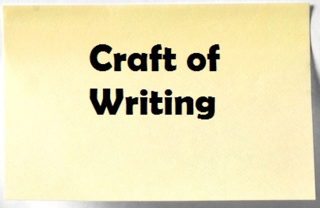 words that typically describe a verb (though they also can describe adjectives and other adverbs, which can be a real symptom of a bloated passage). For example, in the sentence “He walked quickly across the deck”, “quickly” is an adverb because it describes or modifies “walked”, the verb.
words that typically describe a verb (though they also can describe adjectives and other adverbs, which can be a real symptom of a bloated passage). For example, in the sentence “He walked quickly across the deck”, “quickly” is an adverb because it describes or modifies “walked”, the verb.
The sentence could be tightened by dumping “quickly walked” and replacing it with a stronger verb. “Strode” – which indicates a brisk walk – might work better. The sentence then would read, “He strode across the deck.”
If you’ve got a lot of adverbs in a passage, you’re probably relying too much on adverbs to do the hard work in your sentence. Adverbs, however, aren’t the muscle that an exact verb provides. While you may need to use an adverb on occasion, our language generally is broad enough that you can find the right verb.
So trim the fat in your writing and build a buff sentence capable of delivering a right hook to your reader. Or as Strunk and White famously advised with another metaphor, remember that “an adverb is a leech sucking the strength from a verb.”
Need an editor? Having your book, business document or academic paper proofread or edited before submitting it can prove invaluable. In an economic climate where you face heavy competition, your writing needs a second eye to give you the edge. I can provide that second eye.
Related articles
 When to use affect vs. effect
When to use affect vs. effect



